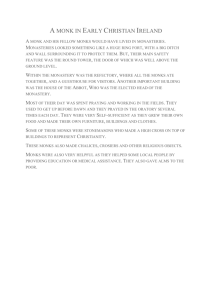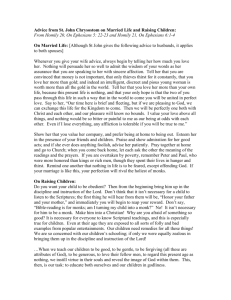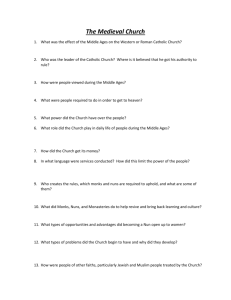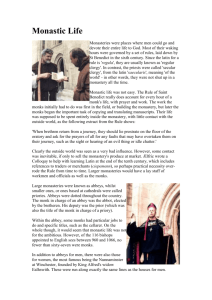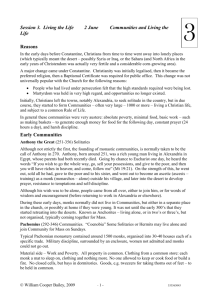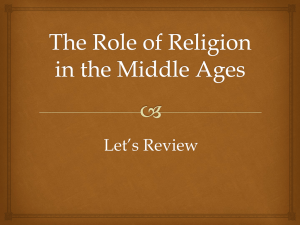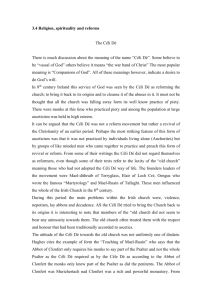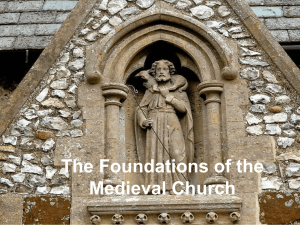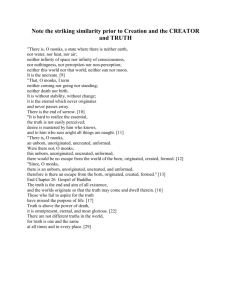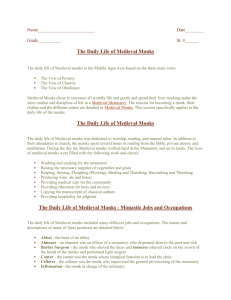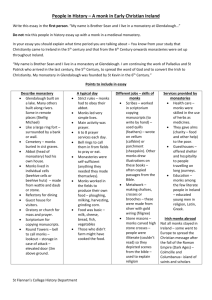Monks and Nuns
advertisement
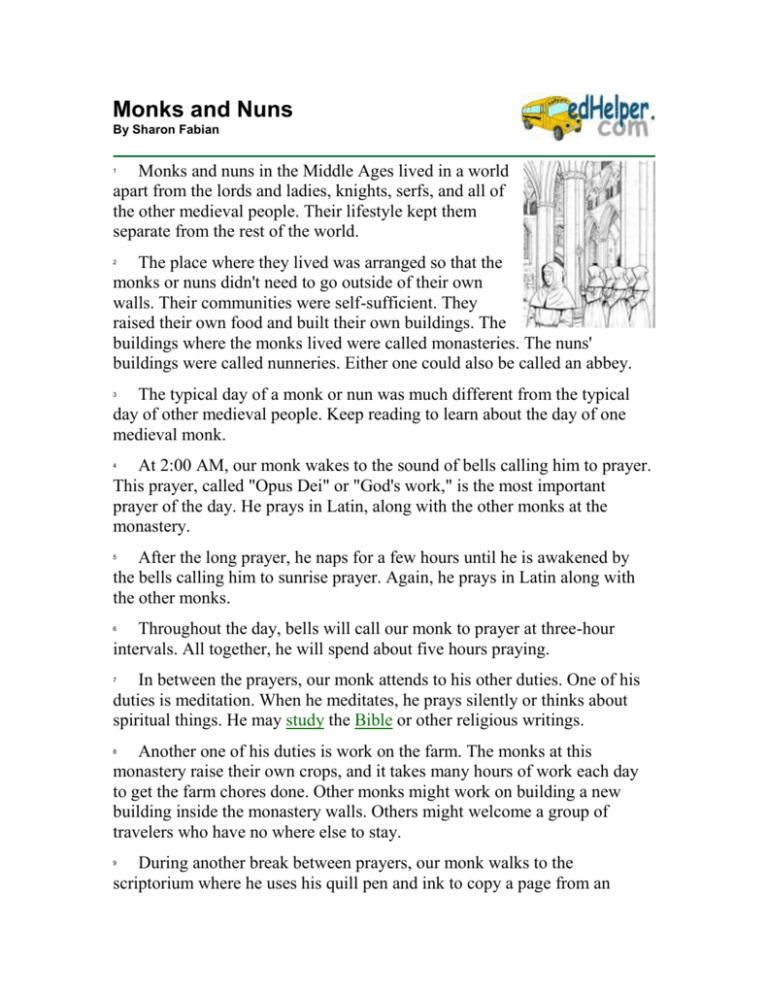
Monks and Nuns By Sharon Fabian Monks and nuns in the Middle Ages lived in a world apart from the lords and ladies, knights, serfs, and all of the other medieval people. Their lifestyle kept them separate from the rest of the world. 1 The place where they lived was arranged so that the monks or nuns didn't need to go outside of their own walls. Their communities were self-sufficient. They raised their own food and built their own buildings. The buildings where the monks lived were called monasteries. The nuns' buildings were called nunneries. Either one could also be called an abbey. 2 The typical day of a monk or nun was much different from the typical day of other medieval people. Keep reading to learn about the day of one medieval monk. 3 At 2:00 AM, our monk wakes to the sound of bells calling him to prayer. This prayer, called "Opus Dei" or "God's work," is the most important prayer of the day. He prays in Latin, along with the other monks at the monastery. 4 After the long prayer, he naps for a few hours until he is awakened by the bells calling him to sunrise prayer. Again, he prays in Latin along with the other monks. 5 Throughout the day, bells will call our monk to prayer at three-hour intervals. All together, he will spend about five hours praying. 6 In between the prayers, our monk attends to his other duties. One of his duties is meditation. When he meditates, he prays silently or thinks about spiritual things. He may study the Bible or other religious writings. 7 Another one of his duties is work on the farm. The monks at this monastery raise their own crops, and it takes many hours of work each day to get the farm chores done. Other monks might work on building a new building inside the monastery walls. Others might welcome a group of travelers who have no where else to stay. 8 During another break between prayers, our monk walks to the scriptorium where he uses his quill pen and ink to copy a page from an 9 ancient book. Every day, he picks up where he left off and copies another page or two. By the middle of next year, he should have this book finished. Other monks paint the illuminations, the colorful, decorated capital letters that begin many of the pages. The finished book will be kept in the monastery's library, the only library in the town. Since this is summer, and the monks work hard on the farm, their day is interrupted twice for meals. In the winter, only one meal is served each day. The monks all look alike lined up at their long dining tables, each one wearing the same long, black, woolen robe. The black color indicates that these are Benedictine monks, followers of the rules of Saint Benedict. 10 Saint Benedict's rules are very strict. By following his rules, our monk makes sure that he complies with his religious vows of poverty, chastity, and obedience. All of the monks have already promised to keep these vows. So, they cannot earn money or buy things, they cannot get married, and they must follow all of the rules every day without question. 11 Our monk follows the rules today, as he does every day. He alternates work sessions with prayer sessions until midnight. Then he sleeps for a few short hours until 2:00 AM, when the bells will awaken him for tomorrow morning's prayers. 12 Copyright © 2010 edHelper
